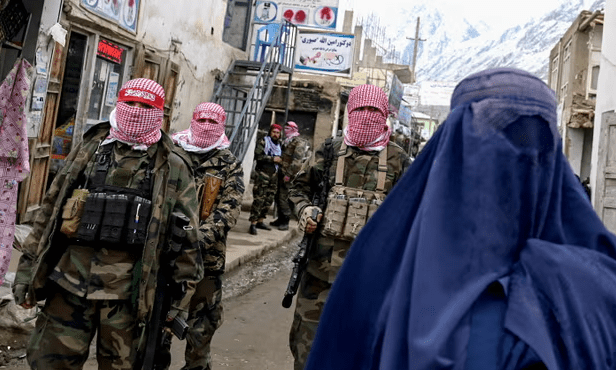
When Sima Samar and other Afghan women came up with the term “gender apartheid” in the 1990s to describe the systematic oppression faced by women and girls under Taliban rule, she never imagined it would have become a key weapon in the fight to hold a second Taliban regime to account for their crimes two decades later.
“When the first Taliban regime fell, the idea that we would once again see the persecution, isolation and segregational and systematic repression of half the Afghan population on the basis of their gender seemed impossible,” says Samar, who served as the minister for women’s affairs after the overthrow of the Taliban in 2001 and now lives in exile. “But now, in 2024, it is happening again and this time we must find a way to fight for justice.”
At the end of 2023, a campaign for gender apartheid in Afghanistan to be recognised and codified by the UN as a crime against humanity was launched, part of a desperate attempt by Afghan women living outside the country to get the international community to stop the new regime’s assault on women and girls.
“Racial apartheid is a crime against humanity under international law since 1973. Swap the word ‘racial’ for ‘gender’ and this is what is happening to Afghan women and girls,” says Samar.
Since they took power in August 2021, the Taliban have issued more than 80 edicts restricting the lives of women and girls. They have prevented girls from going to secondary school, barred women from nearly all forms of paid employment, from accessing the justice system or walking in public parks.
They have stipulated that women must be completely covered at all times outside the house and that their voices must not be heard in public. Women can now be stoned to death for crimes such as adultery.
“No action or condemnation by the international community has done anything to stop the assault on women’s rights,” says Samar. “So it has come down to Afghan women to act.”
In January, the Bishnaw project asked more than 3,600 women from 19 provinces across Afghanistan whether they believed they were living under a system of gender apartheid.
Of the women who took part, the survey found that 67% agreed the restrictions they lived under amounted to “systemic oppression” of women and girls. When asked if they wanted the UN to use the term “gender apartheid” to describe their situation, 60% agreed.






